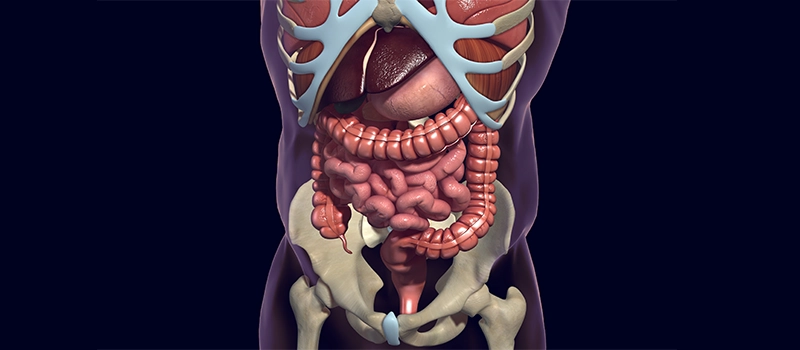
Mastering NEET UG 2025: Strategies for Early Preparation and Long-Term Success
The National Eligibility cum Entrance Test (NEET) is one of the most crucial exams for aspiring medical students in India. With intense competition and a syllabus that spans across three major subjects—Physics, Chemistry, and Biology—NEET requires meticulous planning and consistent effort. To succeed in NEET UG 2025, students need to start their preparation early, develop effective study habits, and stay focused on their long-term goals.
In this blog, we’ll walk you through strategies for early preparation and offer practical tips to ensure long-term success in NEET 2025.
1. Start Early and Build a Solid Foundation
The most important step towards success in NEET 2025 is to start your preparation as early as possible. Ideally, students should begin their preparation by the end of their 11th grade or the start of 12th grade. Starting early gives you ample time to cover the entire syllabus, revise regularly, and work on weak areas without the pressure of last-minute cramming.
Why Early Preparation Matters:
- Time Management: Starting early ensures that you have enough time to divide your study hours effectively between Physics, Chemistry, and Biology, without feeling overwhelmed.
- Thorough Understanding: You have time to grasp the fundamental concepts deeply and avoid rushing through topics.
- Sufficient Revision Time: Revising is key to retaining knowledge. Early preparation gives you the chance to revise multiple times before the exam.
How to Start Early:
- Break Down the Syllabus: The NEET syllabus is vast. Break it down into manageable chunks by subject and topic. This allows you to focus on one section at a time without feeling overwhelmed.
- Create a Study Schedule: Make a weekly or monthly study plan, allocating specific hours for each subject. Consistency is key.
2. Master the NEET Syllabus and Exam Pattern
Before diving deep into your studies, familiarize yourself with the NEET syllabus and exam pattern. Understanding the topics covered in Physics, Chemistry, and Biology helps you prioritize your study plan.
Key Insights:
- Weightage of Topics: Some chapters carry more weight than others. For instance, topics like Human Physiology, Genetics and Evolution in Biology, and Chemical Bonding and Thermodynamics in Chemistry are often emphasized in NEET. Knowing which topics to prioritize can make your preparation more focused and efficient.
- Exam Pattern: NEET consists of 180 multiple-choice questions (MCQs) from Physics, Chemistry, and Biology. It’s essential to know the exam structure to prepare effectively and practice accordingly.
How to Master the Syllabus:
NEET is a subject-intensive exam, and mastery in Physics, Chemistry, and Biology is essential. While all three subjects are important, students often find Biology easier and Physics more challenging. Here’s how to approach each subject:
Biology (Botany & Zoology):
- Focus on NCERT: Biology is heavily based on NCERT, so ensure you have a deep understanding of each chapter. Pay extra attention to diagrams, processes, and functions in both Botany and Zoology.
- Key Topics: Chapters like Genetics, Evolution, Human Physiology, and Plant Physiology frequently carry more weight in NEET exams.
Chemistry:
- Organic and Inorganic Chemistry: Organic chemistry can seem tricky, but consistent practice and understanding of mechanisms and reactions can make it easier. For Inorganic Chemistry, focus on memorizing key reactions and periodic trends.
- Physical Chemistry: Focus on problem-solving techniques for topics like Thermodynamics, Chemical Kinetics, and Equilibrium. Practice numerical regularly.
- Key Resources: Stick to NCERT for conceptual clarity in both Organic and Inorganic Chemistry. For additional practice, Jaypee Books offer a detailed collection of problems and solutions for NEET aspirants, especially in topics like Physical Chemistry and Organic Chemistry.
Physics:
- Conceptual Clarity: Physics often poses the biggest challenge for NEET aspirants. Focus on understanding core concepts in mechanics, electromagnetism, optics, and thermodynamics.
- Problem Solving: Work on building problem-solving skills through regular practice. Books like H.C. Verma’s Concepts of Physics and D.C. Pandey are excellent for detailed explanations and additional practice problems.
- Key Resources: Jaypee Books are also highly recommended for Physics. Their collection of numerical exercises and conceptual problems helps students tackle tricky questions and build a deeper understanding of Physics concepts, particularly in areas like Mechanics and Optics.
3. Strengthen Core Subjects with Focused Study
NEET is a subject-intensive exam, and mastery in Physics, Chemistry, and Biology is essential. While all three subjects are important, students often find Biology easier and Physics more challenging. Here’s how to approach each subject:
Biology (Botany & Zoology):
- Focus on NCERT: Biology is heavily based on NCERT, so ensure you have a deep understanding of each chapter. Pay extra attention to diagrams, processes, and functions in both Botany and Zoology.
- Key Topics: Chapters like Genetics, Evolution, Human Physiology, and Plant Physiology frequently carry more weight in NEET exams.
Chemistry:
- Organic and Inorganic Chemistry: Organic chemistry can seem tricky, but consistent practice and understanding of mechanisms and reactions can make it easier. For Inorganic Chemistry, focus on memorizing key reactions and periodic trends.
- Physical Chemistry: Focus on problem-solving techniques for topics like Thermodynamics, Chemical Kinetics, and Equilibrium. Practice numerical regularly.
Physics:
- Conceptual Clarity: Physics often poses the biggest challenge for NEET aspirants. Focus on understanding core concepts in mechanics, electromagnetism, optics, and thermodynamics.
- Problem Solving: Work on building problem-solving skills through regular practice. Books like I.E. Irodov and H.C. Verma can provide ample practice problems.
- Time Management: Physics requires quick calculations and application of concepts under time pressure. Practice solving problems within the allotted time frame to improve speed.
4. Focus on Conceptual Learning and Practice
To ace NEET 2025, it’s crucial to focus on conceptual learning rather than rote memorization. NEET tests your understanding of scientific principles and how well you can apply them in solving problems.
Effective Strategies for Conceptual Learning:
- Active Learning: Instead of passively reading, engage with the material through active notetaking, summarizing key concepts, and discussing them with peers or mentors.
- Visual Learning: Use diagrams, flowcharts, and mind maps to reinforce concepts, especially in Biology and Organic Chemistry.
- Regular Practice: Consistent practice is essential for subjects like Physics and Chemistry. Regular problem-solving enhances problem-solving skills and improves accuracy.
5. Stay Consistent and Track Your Progress
Success in NEET 2025 is all about consistent effort. Even on days when you feel tired or demotivated, try to maintain a steady study routine. Regular assessments and self-evaluation will also help you stay on track.
How to Stay Consistent:
- Set Small Goals: Break your preparation into small, achievable goals. Completing daily tasks will keep you motivated.
- Self-Assessment: Take regular mock tests and analyze your performance. Identify weak areas and work on them immediately.
- Avoid Burnout: While consistency is important, it’s equally crucial to take breaks, relax, and manage stress. Balance your study routine with physical activities or hobbies.
6. Take Care of Your Mental and Physical Health
Preparing for NEET can be demanding and maintaining your mental and physical well-being is essential. Stress management and self-care are integral parts of a successful NEET preparation plan.
Health Tips for NEET Aspirants:
- Healthy Diet: Eating a balanced diet rich in nutrients will keep your energy levels high and enhance concentration.
- Regular Exercise: Physical activity helps in reducing stress and maintaining mental clarity.
- Adequate Sleep: Ensure 7-8 hours of sleep to help your brain recharge and improve memory retention.
- Stress Management: Practice relaxation techniques such as deep breathing, meditation, or yoga to manage exam stress.
7. Review and Revise Regularly
As the NEET exam date draws near, revision becomes key. Regularly revisit difficult concepts, solve practice papers, and fine-tune your exam strategies. The more you revise, the more confident you’ll be in handling the actual exam.
Mastering NEET 2025 requires careful planning, early preparation, and consistent effort. By starting early, mastering the syllabus, focusing on core subjects, and incorporating regular revision and practice into your routine, you’ll be on the right path to success. Stay positive, take care of your health, and remain committed to your goal. With the right approach and determination, NEET 2025 will be your stepping stone to a rewarding medical career.
Frequently Asked Questions
1. How many marks are required in NEET UG for MBBS?
Ans. The minimum marks required for MBBS is the general category is 720-162, for SC/ST/OBC category, the cutoff is 161-127, for the general- PH category it is 161-144, for the SC/OBC- PH it is 143-127, and for ST PH it is 142-127.
2. What are the rules for NEET 2025?
Ans. Candidates must be 17 years old as of December 31, 2025. Minimum Qualification: Candidates must have passed the qualifying exam for Physics, Chemistry, Biology, and English individually. Candidates must have passed the qualifying exam of class 12th with a minimum aggregate score of 45%.
3. How can I create an effective study plan for NEET UG 2025?
Ans. Create a balanced plan with daily, weekly, and monthly goals. Focus on high-weightage topics, practice mock tests, and revise regularly.
Related post


















































